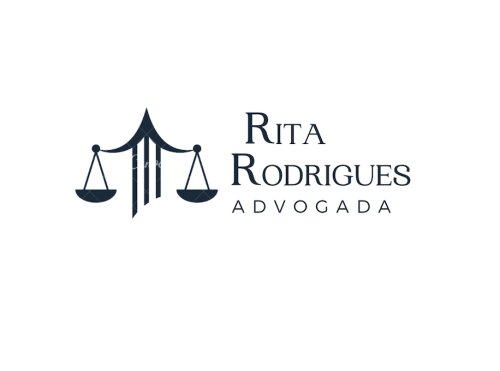Best Private Equity Lawyers in Porto
Share your needs with us, get contacted by law firms.
Free. Takes 2 min.
List of the best lawyers in Porto, Portugal
About Private Equity Law in Porto, Portugal
Private equity (PE) represents a crucial segment in Porto's financial and business landscape. Broadly, private equity involves investment in private companies or in public companies with the intention of delisting them from public stock exchanges. In Porto, as in the rest of Portugal, private equity is a popular tool for revitalizing businesses, fueling growth, or facilitating corporate restructurings. Local and international investors use private equity funds to support startups, established firms, and large-scale projects. Porto's vibrant entrepreneurial ecosystem, legal infrastructure, and proximity to innovation hubs make it an attractive destination for private equity activities.
Why You May Need a Lawyer
Navigating private equity transactions is complex and requires careful legal scrutiny. You may need a lawyer if you are:
- Raising capital for your business from private equity investors
- Establishing a private equity fund or managing an investment vehicle
- Buying or selling shares in private companies
- Negotiating investment agreements, shareholder agreements, or exit strategies
- Handling regulatory compliance or reporting obligations
- Managing tax structuring or cross-border transactions
- Dealing with disputes between investors, founders, or management teams
- Protecting intellectual property or sensitive business information during transactions
A specialist lawyer ensures that your rights and investments are protected, risks are minimized, and you are compliant with applicable laws.
Local Laws Overview
Private equity operations in Porto are governed by both national and European regulations.
- Fund Regulation: Private equity funds are regulated under the Portuguese Securities Code and require authorization from the Portuguese Securities Market Commission (CMVM).
- Investment Vehicles: Common structures include closed-end investment companies, funds, and special purpose vehicles - each with specific legal and tax implications.
- Due Diligence: Portuguese law emphasizes thorough due diligence prior to acquisitions, especially in relation to corporate, tax, and labor liabilities.
- Contractual Frameworks: The negotiation and drafting of shareholder or investment agreements are guided by the Portuguese Civil Code and Commercial Companies Code.
- Taxation: Private equity transactions can be impacted by corporate income tax (IRC), value-added tax (IVA), and potential stamp duties. Structures can be optimized for efficiency.
- Exit Strategies: Methods like trade sales, initial public offerings, buyouts, or secondary sales are subject to local rules around transfer of shares and minority protections.
- Foreign Investment: While relatively open, some sectors may require clearance or have restrictions, particularly for non-EU investors.
Frequently Asked Questions
What is private equity and how does it work in Porto?
Private equity involves investment in private companies or buyouts of public companies with the aim of enhancing their value and eventually achieving a profitable exit. In Porto, both local and international investors participate in private equity to support businesses across various sectors.
Do private equity funds need to be registered in Portugal?
Yes, private equity funds must typically register with the CMVM. They must comply with local regulations regarding structure, governance, and reporting.
What legal forms can private equity funds take in Portugal?
The common legal forms include closed-end investment companies, closed-end investment funds, and special purpose vehicles, each with tailored regulatory and tax obligations.
Is due diligence mandatory in private equity transactions?
While not legally mandatory, comprehensive due diligence is strongly advised to identify legal, financial, and operational risks before any investment.
Are there restrictions on foreign investors in private equity?
Generally, Portugal welcomes foreign investors, but certain sectors, such as defense or national security, may impose restrictions or approval requirements.
What taxes apply to private equity investments?
Key taxes include corporate income tax, value-added tax on certain services, and sometimes stamp duty on transfers. Tax obligations can vary depending on the specific structure and cross-border aspects.
How are exit strategies structured in Porto private equity deals?
Exits may involve selling shares to a third party, IPOs, or buybacks. Contracts detail exit mechanisms, protections for minority shareholders, and preemptive rights, all of which are governed by Portuguese law.
What is the role of the CMVM?
The CMVM supervises and regulates securities markets and related financial actors, including private equity funds and managers, ensuring market integrity and investor protection.
Do I need a local advisor for a cross-border private equity investment in Porto?
Yes, local legal and tax advisors are essential to navigate Portuguese laws, ensure compliance, and optimize deal structuring, especially for international or complex transactions.
How long does a typical private equity transaction take in Portugal?
Transaction timelines vary depending on deal complexity, due diligence findings, regulatory approvals, and negotiation rounds, but generally, deals can take several months from inception to closing.
Additional Resources
For those seeking more information or support, consider the following resources:
- Portuguese Securities Market Commission (CMVM) - Regulates funds and market actors
- Associação Portuguesa de Capital de Risco (APCRI) - The Portuguese Venture Capital and Private Equity Association
- Instituto dos Registos e Notariado (IRN) - Handles company registrations and official records
- Portuguese government business portals - For company, tax, or investment queries
- Local business chambers and innovation hubs - For networking and guidance
Next Steps
If you are considering private equity investment, fundraising, or negotiating a deal in Porto, Portugal, it is important to seek specialized legal advice tailored to your goals. Begin by outlining your objectives and gathering relevant company or investment information. Research and contact experienced lawyers or legal firms in Porto specializing in private equity. Many offer initial consultations where you can discuss your needs, receive preliminary guidance, and understand potential costs. Preparing clear questions in advance will help you make the most of your legal consultation. Whether you are an entrepreneur, investor, or advisor, working with a qualified legal professional will help ensure that your transaction is secure, compliant, and positioned for success.
Lawzana helps you find the best lawyers and law firms in Porto through a curated and pre-screened list of qualified legal professionals. Our platform offers rankings and detailed profiles of attorneys and law firms, allowing you to compare based on practice areas, including Private Equity, experience, and client feedback.
Each profile includes a description of the firm's areas of practice, client reviews, team members and partners, year of establishment, spoken languages, office locations, contact information, social media presence, and any published articles or resources. Most firms on our platform speak English and are experienced in both local and international legal matters.
Get a quote from top-rated law firms in Porto, Portugal — quickly, securely, and without unnecessary hassle.
Disclaimer:
The information provided on this page is for general informational purposes only and does not constitute legal advice. While we strive to ensure the accuracy and relevance of the content, legal information may change over time, and interpretations of the law can vary. You should always consult with a qualified legal professional for advice specific to your situation.
We disclaim all liability for actions taken or not taken based on the content of this page. If you believe any information is incorrect or outdated, please contact us, and we will review and update it where appropriate.
















